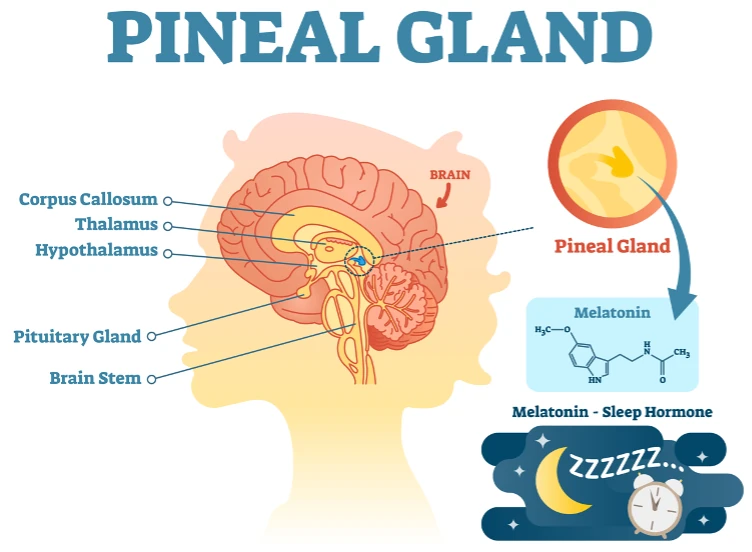A peaceful and rejuvenating sleep is vital for our overall well-being. However, achieving the right quality of sleep is not just about the number of hours you spend in bed; it’s also about different sleep stages, especially the amount of time spent in deep sleep. In this article, we will explore what deep sleep is, why it is essential, and how you can increase it to enjoy a better night’s rest.
What is deep sleep?
Deep sleep, also known as slow-wave sleep (SWS), is a stage of sleep characterised by slow, synchronised brain waves, and is considered the most restorative phase of the sleep cycle.
Deep sleep is challenging to awaken from, and if you do wake up during this stage, you may feel disoriented or groggy. Deep sleep is associated with reduced heart rate, blood pressure, and muscle activity, allowing your body to recover and recharge.
What are the four stages of sleep?
To understand where deep sleep fits in the sleep cycle, it is essential to be familiar with the four stages of sleep:
Stage 1: This is the lightest stage of sleep, and it’s the transitional phase when you’re drifting off to sleep.
Stage 2: Stage 2 is characterised by a deeper relaxation of the body and a drop in core body temperature.
Stage 3: This is where deep sleep occurs, and it’s during this phase that your body repairs tissues and consolidates memories.
REM (Rapid Eye Movement): REM sleep is the stage where dreaming occurs.
How much deep sleep do you need each night?
The amount of sleep a person needs depends on a number of factors, including individual characteristics and age. Sleep requirements tend to change across the lifespan. Generally speaking, young adults require between seven and nine hours of sleep per night.
Deep sleep tends to predominate the first third of the night. For young adults, it is recommended that at least 20% of that time should be spent in deep sleep. Older adults, aged 60 and above may only spend around 2% of their night in deep sleep.
Many of us don’t get enough deep sleep – or enough sleep in general. Around one-third of American adults get fewer than seven hours of sleep each night.
The table below demonstrates the average amounts of deep sleep needed for various age groups:
| Age Group | Sleep Requirements (hours) | Deep Sleep Needed (hours) |
| Newborn to 3 months | 12 – 18 | 2.4-3.6 |
| 3 months to 1 year old | 14-15 | 2.8-3.0 |
| 1 to 3 years old | 12-14 | 2.4-2.8 |
| 3 to 5 years old | 11-13 | 2.2-2.6 |
| 5 to 12 years old | 10-11 | 2-2.2 |
| 12 to 18 years old | 8.5-10 | 1.7-2 |
| Over 18 years old | 7.5-9 | 1.5-1.8 |
What causes a lack of deep sleep?
Several factors can lead to a lack of deep sleep and prevent you from feeling well rested for the day.
Caffeine and Stimulants: Consuming caffeine or other stimulants too close to bedtime can interfere with your ability to enter deep sleep. The Journal of Clinical Sleep Medicine advises the public to refrain from consuming any caffeinated drinks within six hours of the individual’s bedtime.
Blue Light Exposure: Exposure to blue light from screens, such as smart phones and tablets, disrupts your circadian rhythm. Blue light exposure at night can suppress melatonin production, a hormone that regulates sleep. Less total sleep time can result in less time spent in all stages of sleep, including deep sleep.
Stress and Anxiety: Mental and emotional stress can delay you from transitioning into deep sleep, especially during your first sleep cycle. Chronic stress has been associated with sleep disturbance, including reduced deep sleep. Managing stress effectively is therefore very important, and many people find relaxation techniques helpful.
Sleep Disorders: Conditions like sleep apnoea and insomnia can disrupt the normal sleep cycle, that this can have an impact on the amount of deep sleep you get.
Poor Sleep Environment: An uncomfortable mattress, noise, or excessive heat in the bedroom can be the reason for a poor sleep environment and interfere with your ability to fall into deep sleep. Choosing a comfortable and supportive mattress is crucial for sleep quality.
Alcohol: Alcohol has sedative effects and as a result it can reduce the time it takes for a person to fall asleep. However, regular and excessive alcohol consumption can result in less slow wave sleep and increased amounts of time in stage 1 sleep. Also, when you drink alcohol, you are more likely to need to pass urine at night, further disrupting your sleep cycle. This is because alcohol is a diuretic and encourages the body to lose extra fluid through both urine and sweat.
8 ways to increase your deep sleep naturally
Utilising the following strategies can help to increase your total sleep time, and the overall amount of deep sleep:
- Maintain a consistent sleep schedule: Waking up at the same time every day helps to regulate your body’s sleep drive, which can help you to fall into deep sleep sooner.
- Create a relaxing bedtime routine: Engage in calming activities before bed, such as reading, taking a warm bath, or practising relaxing breathing techniques.
- Limit caffeine and screen time: Avoid caffeine in the afternoon, and electronic devices immediately before bed to minimise sleep disruptions.
- Keep the bedroom cool and dark: A cooler room with minimal light promotes a more comfortable sleep environment, and makes it easier to fall asleep.
- Regular exercise: An article from John Hopkins Medicine stated that moderate aerobic exercise increases the amount of deep sleep you get. People who engage in at least 30 minutes of moderate sleep may see a difference in sleep quality that same night. It is important to note that the timing of exercise can have an effect on sleep for some individuals. Some people may struggle to sleep shortly after exercising whilst others may notice no difference, so it is important to exercise at a time that does not disrupt your sleep.
- Mindfulness and meditation: practising mindfulness and meditation can reduce stress which promotes deep sleep. There are many resources available online for people looking to practise mindfulness and meditation, ranging from free YouTube videos, to paid services such as Headspace.
- Wear an eye mask: Wearing an eye mask can block out light and facilitate sleep.
- Diet and Nutrition: Spicy foods have been linked to reduced sleep quality. According to John Hopkins Medicine, spicy foods can cause heartburn, which can negatively impact your sleep. Red pepper specifically can increase your core body temperature, thus decreasing the quality of your sleep. For better sleep, experts at John Hopkins advise people to avoid spicy foods within three hours of bedtime, as well as tomato sauce and other acidic foods if they result in heartburn.
Benefits of deep sleep
Getting enough deep sleep offers a multitude of benefits for your physical and mental health. Here are some advantages:
Muscle growth: Deep sleep stimulates the release of growth hormones, contributing to muscle recovery and growth. Alongside this, the body’s metabolic rate slows down, allowing more blood to flow to your muscles. This facilitates an increased supply of oxygen and essential nutrients to the muscles, supporting the restoration and development of tissues.
Brain function: Deep sleep is essential for memory consolidation, problem-solving, and overall cognitive function. Research also suggests that sleep removes toxins from your brain that build up while you are awake.
Reduces Inflammation: Poor sleep is associated with higher levels of inflammatory biomarkers. The state of deep sleep helps to reduce inflammation in the body, promoting overall health and well-being.
Reduces Blood Pressure: In a typical sleep cycle, and particularly during deep sleep, your blood pressure naturally decreases. Sleep disturbances can lead to prolonged periods of elevated blood pressure. Elevated blood pressure ranks amongst the top risk factors for heart disease and stroke.
Deep sleep is a critical component of a good night’s rest. Deep sleep isn’t just a passive state of unconsciousness; it’s an active player in your overall health, and it’s important to embrace and enhance it. By taking proactive steps to optimise your sleep environment, adopting relaxation techniques, and making healthy lifestyle choices, you can unlock the profound benefits of deep sleep. So, as you embark on your journey towards a better night’s rest, remember that it’s not just about the hours spent in bed; it’s about the quality of those hours. Prioritise deep sleep, and you’ll be rewarded with not only a well-rested mind and body but also a healthier, happier you.
Still struggling to sleep at night?
Deep sleep is essential in rejuvenating the body and preparing you for the next day. In some cases, your sleep may be affected by underlying physical health, mental health or sleep disorders. If you feel that the suggestions detailed above have not improved your sleep, please get in touch, as it is important to identify and address any causative factors as soon as possible.
As a sleep physician and psychiatrist, Dr Dipesh Mistry offers consultations for those struggling with their sleep. Please feel free to book a sleep medicine consultation if you would like to explore ways of improving your sleep.










